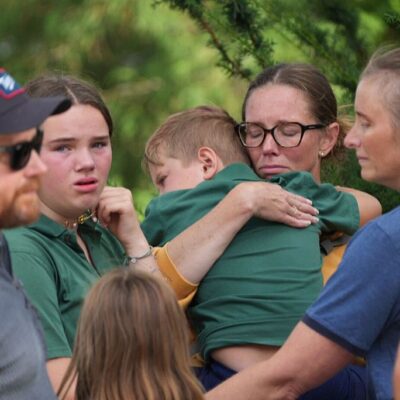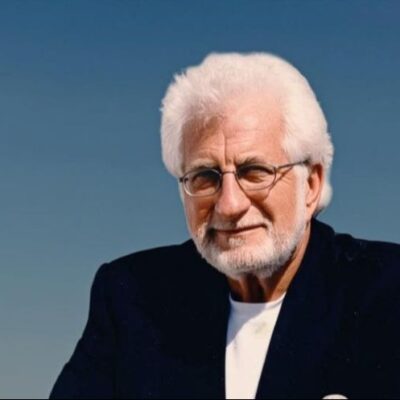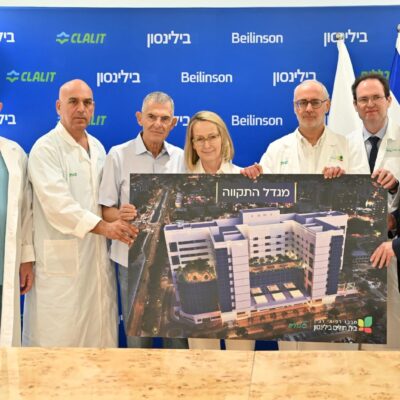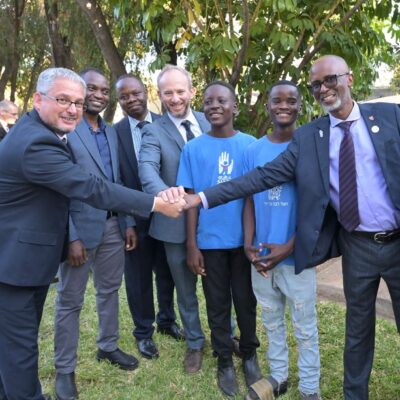Opinion
ZIONISM IN ACTION
‘To everything there is a season,’ and now is the time for business
Oren, owner of the small eatery Ach Sheli Gibor (My Brother, The Hero), located in the Shomron, recently stood in his empty restaurant, mentally preparing to shut the business down. “I told my mom, ‘That’s it. I’m done. I can’t pay the debts. I’m closing,’” he recounted.
Then the phone rang. An hour later, 50 tourists poured through the doors.
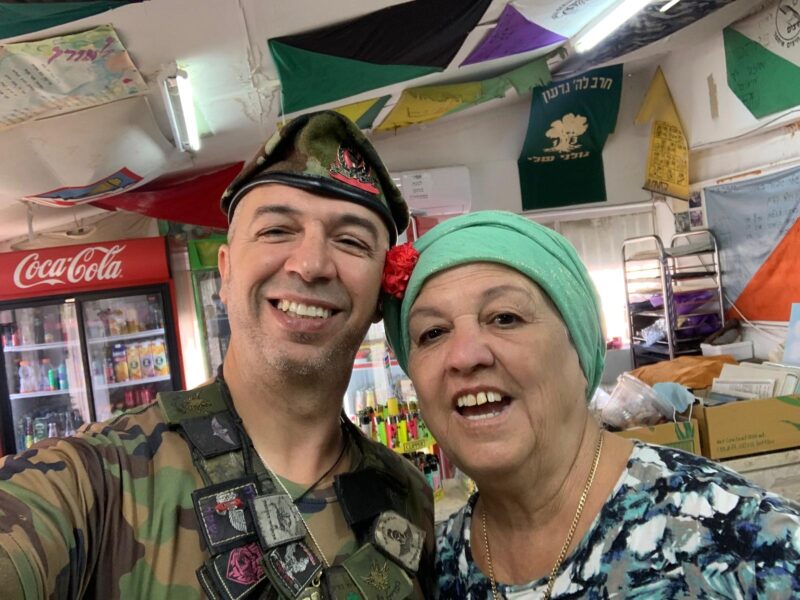
Courtesy
Oren (left), the owner of the restaurant Ach Sheli Gibor (My Brother, The Hero) in Israel.
“I thought you were Elijah the Prophet!” he laughed, overwhelmed with tears of gratitude.
In that moment, Oren’s restaurant became more than a business; it became a symbol of hope and proof that when people show up, miracles happen.
Linda, the reservations manager at Israel Connection Tours, describes the collapse of inbound travel since Oct. 7, 2023. “Each missile means airlines — especially from the U.S. — cancel. The streets here don’t scream war, but the tourists? They’re gone.” With flights canceled, tourists scarce and businesses barely recovered from the COVID-19 crisis, the industry has been hit hard again.
Linda’s eyes light up when she speaks of the impact of visiting groups. “Every family, synagogue, church, or group that visits creates a ripple. That money flows to guides, hotels, shops, and restaurants — to businesses like Oren’s, the soul of Israel’s economy.”
‘Zionism Stage C’
When war broke out on Oct. 7, 2023, hearts in Israel beat as one. Soldiers rushed to the front lines, volunteers mobilized across neighborhoods and Jewish communities around the world responded with generosity and resolve, raising billions to support a nation under siege.
Today I’m reminded of a conversation I once had with the late visionary industrialist, Stef Wertheimer, z”l, who passed away this year. He spoke of “Zionism Stage C,” a new era for Israel when strength would come not just from survival, but from prosperity.
“The Zionism of the next generation,” he told me, “is about jobs and economic strength.”
His dream was bold: to transform Israel’s periphery into vibrant centers of industry and innovation, where Jews and Arabs would work side by side, building a shared future. Today, as war casts a long shadow, his words echo like a call to action.
“To everything there is a season, and a time to every purpose under heaven” (Ecclesiastes 3:1).
Now is the time for business.
Wertheimer’s blueprint for the future
Before Operation Swords of Iron, Israel welcomed over 3 million tourists in 2023. In 2024, that number plummeted by roughly 70%, with fewer than 1 million visitors. There are, however, signs of hope: The first quarter of 2025 showed modest recovery, with some travelers beginning to return. Yet we remain far from the record-breaking 4.5 million tourists of 2019.
For many, this isn’t about abstract statistics — it’s about maintaining a livelihood.
Israelis are doing their part: Domestic tourism, for instance, surged in 2024, with a 53% increase in local hotel stays. Now it’s time for the global Jewish community to do the same by showing up, supporting local businesses and helping Israel rebuild through action.
Stef Wertheimer’s vision offers a roadmap through this crisis. He built industrial parks like Tefen in the Galilee, proving that shared economic goals could bridge cultural divides between Jews and Arabs. His company, Iscar, became a global manufacturing giant, proof that Israel could compete on the world stage while staying rooted in local communities.
Through his “Tsurim” network of technical schools in the Galilee and Negev, he trained thousands of young Jews and Arabs in tech and industry. These schools empowered students to build careers close to home, strengthening families, communities and the nation’s economic backbone. Wertheimer believed that jobs are not just about income: they’re about dignity, stability and peace.
This is where you come in, dear readers of eJewishPhilanthropy. You, who light up the Diaspora with your unwavering support, who send groups to volunteer, who donate to rebuild. Every synagogue tour, every solidarity mission, every family that chooses to visit Israel despite the headlines — you are the lifeblood of businesses fighting to survive. You’re the ones keeping Oren’s doors open, helping Linda book another tour and ensuring that Israel’s economy doesn’t just endure but thrives.
So, what can we do? Lean into the moment. Support businesses that tell Israel’s story of resilience, like Piccolino, a small restaurant in Jerusalem, or Arie Herrman, a tour guide from the north who keeps going despite the odds. Share their stories, book a trip, send a group. As Stef Wertheimer believed, jobs are the backbone of Zionism. Every dollar you spend in Israel is a vote for hope, a brick in the foundation of a stronger future.
It’s time to show up, to spend, to build. Because when we do, we’re not just saving businesses, we’re sustaining dreams, families, and the soul of a nation. Let’s make Oren’s miracle happen again and again, until Israel shines brighter than ever.
Nati Glass is the chairman of Israel Employment Innovations (IEI), an Israeli nonprofit developing and testing solutions to better integrate all populations into the labor market, with an initial focus on young adults. IEI operates as a research center that also offers vocational training to increase employment opportunities.

